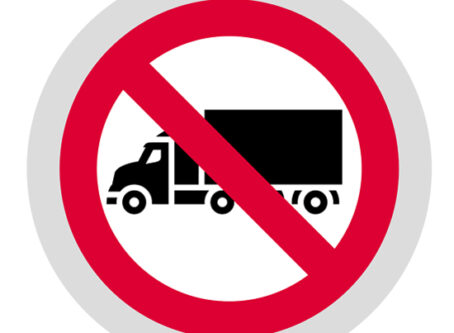Access to truck parking, rest areas, restrooms topics of Washington bills
The Owner-Operator Independent Drivers Association and the Washington Trucking Associations testified Thursday at the Washington statehouse on a bill to address a national safety concern for truck drivers and the motoring public.
The Senate Transportation Committee held a hearing on a House-approved bill to direct the Washington State Department of Transportation to keep state-owned and -operated rest areas open. The bill, HB1655, would make exceptions for seasonal closures, cleaning, maintenance, and repairs.
Addressing a crisis
Rep. Dan Griffey, R-Allyn, describes the lack of safe overnight truck parking as being a “crisis.” He said the state DOT needs to work to maintain rest areas, which he describes as a “vital part” of the network.
Griffey began pushing to keep state-owned and -operated rest areas in the state open after several fall closures.
WSDOT owns and operates 47 rest areas across the state. As recently as last month, eight rest areas were closed due to staffing issues, maintenance, and winter conditions.
“The closure of state-owned safety rest areas is contrary to state policy to have zero deaths on the roadways,” Griffey wrote in the bill.
In testimony Thursday, he added that to help prevent serious and fatal injuries, HB1655 would encourage the opening of safety rest areas for all drivers who need a place to stop when they are tired.
Griffey said availability to rest in designated areas is the upmost importance during the global supply chain shortages.
He added that truck drivers are mandated by law to park and rest.
“Quite frankly, they are finding it nearly impossible to find places to catch up on their rest cycles,” he said.
An amended version of HB1655 allows WSDOT to initiate a process that addresses the maintenance, operation and safety of its owned and operated safety rest areas.
“I would like the DOT to have the flexibility to contract with those specialty services,” Griffey said.
OOIDA exec testifies
OOIDA Executive Vice President Lewie Pugh has provided testimony on the bill in both chambers.
On Thursday, he highlighted to the committee the failure of the federal government to address the issue.
“The United States Congress has failed truck drivers by not including dedicated funding for truck parking in the in the infrastructure bill that was signed into law last year,” Pugh said. “This was a means of preserving existing truck parking capacity, which is critical, and includes keeping rest areas open as much as possible.
“As a person who spent 23 years on the road, I know firsthand how important rest areas are to truckers as a place to get rest, a place to stretch your legs, comply with federal hours-of-service requirements, check your load securement, check your equipment, and make roadside repairs. These are just a few of the reasons rest areas should be open.”
Sheri Call, Washington Trucking Associations president and CEO, said her group has studied the state’s truck parking issue “exhaustively.”
“There is no disagreement there is a truck parking shortage in Washington,” she said.
“Our desire with a bill such as this is to have more legislative oversight of rest area closures. We hope the needs of commercial vehicle operations are given consideration when extraordinary closures are planned,” Call said. “Further, we encourage consideration to supplement the work of WSDOT employees with contract labor to help keep rest areas open given current conditions our WSDOT partners are dealing with in the field.”
OOIDA Board member weighs in
Independent truck driver and OOIDA Board member Tilden Curl of Olympia, Wash., submitted written testimony to the committee.
He wrote that the lack of truck parking results in increased costs for every business and consumer located in the affected areas.
“Commercial truck parking is critical for efficient trucking operations and compliance with federal hours-of-service requirements,” Curl wrote. “Truck drivers depend on these rest areas for personal needs, compliance, safety checks on loads and equipment, as well as a place to rest. These safety rest areas are paramount for truckers and the motoring public.”
Curl wrapped up his comments to the committee by thanking the Washington Legislature for their willingness to attend to the issue. He says lawmakers in the state are doing more than the federal government and any other state to address the truck parking issue, and access to restrooms.
The committee did not vote on HB1655.
Access to restroom facilities
The Senate Transportation Committee voted unanimously to send to the Senate Labor, Commerce and Tribal Affairs Committee another bill to give truck drivers operating at ports around the state assurances for access to restroom facilities.
Sponsored by Rep. Mike Sells, D-Everett, the bill would require terminal operators to provide “a sufficient number of restrooms” for use by drayage truckers in areas of the terminal that operators typically have access. Areas covered in the bill, HB1706, include inside the gate and truck queuing lots.
Restrooms could include fixed bathrooms or portable toilets.
Terminal operators would be in compliance with the rule when a policy is in place to allow drayage truckers to leave their vehicles at “reasonable times and locations” for purposes of access restrooms.
Facilities must be located where access would not pose an “obvious health or safety risk” to the user.
Drayage truck operators accessing the terminal for the purpose of loading, unloading, or transporting cargo would be covered by the rule.
The Senate Labor Committee is scheduled to hold a public hearing Feb. 21 on HB1706. House lawmakers voted unanimously last week to advance the bill. LL
More Land Line coverage of news from Washington.









